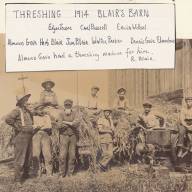Warren is considering buying a subscription to a software platform that would collect data on Short Term Rentals (STRs) in the town. The town would use that data to understand whether and how the STR market is impacting the availability of long-term and affordable housing units.
At a January 9 meeting of the Warren Select Board, the Warren Planning Commission asked for approval to purchase an STR monitoring platform created by the company Granicus. This particular program came on the recommendation of the Mad River Valley Planning District (MRVPD), which would be analyzing the data.
A subscription would cost the town between $14,000 and $27,000 annually, depending on the services that are selected. The program collects data on STRs in a given area from online marketplaces like Airbnb, VRBO and HomeAway.
An STR is defined by the state as a house or unit rented to the transient or vacationing public for more than 14 days per year, in periods of less than 30 days.
Sam Robinson, MRVPD community planner, said that data collected by the program could be analyzed in order to understand how many housing units have been converted to commercial STRs, and whether they were converted from long-term housing or other types of units.
Planning commission chair Dan Raddock said that data collected could also help the town to understand how neighbors of STR properties are impacted – by tracking properties that generate complaints, and whether STRs are safe for renters themselves – by tracking whether a listing meets code requirements.
Aside from gaining a better understanding of the housing crisis, the town would use results from the data to decide whether it wants to regulate the STR market in Warren, and how.
“Warren is stepping up to the plate to say, we recognize that we need the data to start regulating,” select board member Bob Ackland said. “What’s happened across the country is that people have regulated before they have the data. And they are finding they are making bad decisions in the regulatory process, having to retract a lot of the regulations, because they’re not working the way they want them to work.”
If the select board approves the purchase of the subscription service, the town will also likely be passing an ordinance that would require STR owners in Warren to pay an annual registration fee of $100 to the town.
Several towns across Vermont, such as Killington, Burlington, Rutland, and Manchester, have passed ordinances, set up registries and required registration fees for STR owners. Ackland said that that considering what many people are earning from their STRs, “$100 is nothing.”
Registration fees collected by the town would reimburse the purchase of the software program. The planning commission said that Warren has an estimated 451 STRs, which means the town could collect about $45,000.
On the low end, the software could cost $14,000, with the ability to collect various kinds of data from online listings. On the high end, with additional services, it could cost $27,000 – including the ability to identify property owners who have outstanding registration fees and automate letters that would then be mailed to them.
As far as how remaining registration fees would be spent, Raddock said that “we haven’t made that decision yet. Maybe if the money is pooled over five or 10 years, we would start to have enough money to think about doing something creative with it. Maybe the town could buy a piece of land and work with an affordable housing developer in a public-private partnership.”
“My personal hope is that remaining funds collected would be used for something connected to promoting affordable housing,” he added.
Raddock also said that if other towns were interesting in purchasing a software subscription to track their STR market, towns could collectively get a discount. Fayston Select Board chair Jared Cadwell said that Fayston has not discussed the use of this software, although it has been a topic of discussion at several MRVPD meetings over the past years.
According to the Vermont Housing Finance Agency, which collects data on Vermont STRs using AirDNA, the number of STRs in Vermont has significantly increased over time – especially in the past three years. The COVID-19 pandemic and associated travel restrictions led to a sharp decline in spring 2020, but from early 2021 onwards, growth resumed – with 10,131 STR units in 2022, and 11,747 in 2023.
“The proliferation of these short-term rental websites has made it now so easy, and so profitable, and so accessible for people to list their residences as an STR, that maybe what has created the problem with housing,” Raddock said.
Ackland insisted that “we need short-term rentals in this community. But, he added, “We need to make sure it’s not impacting the community in a negative way.”













